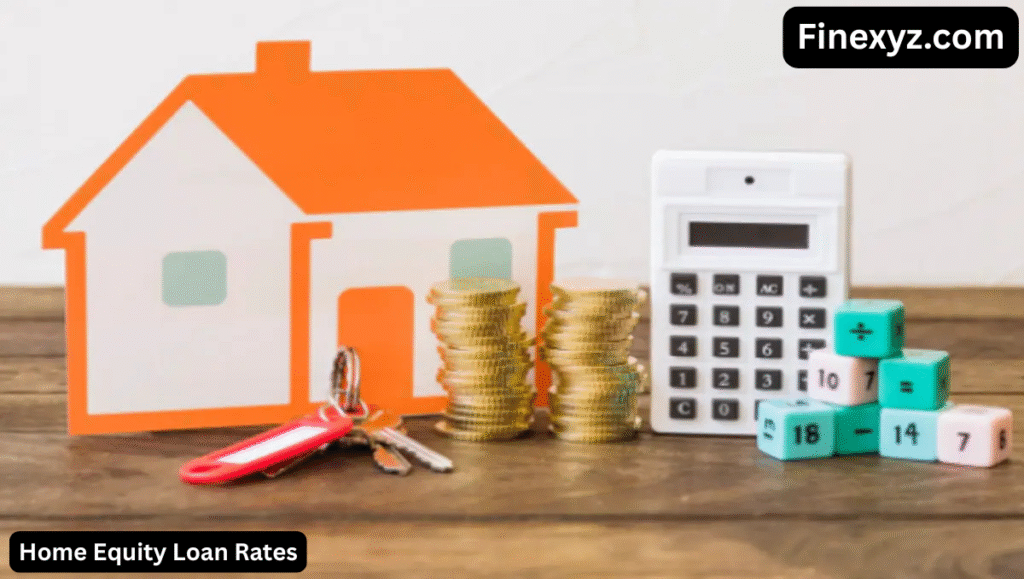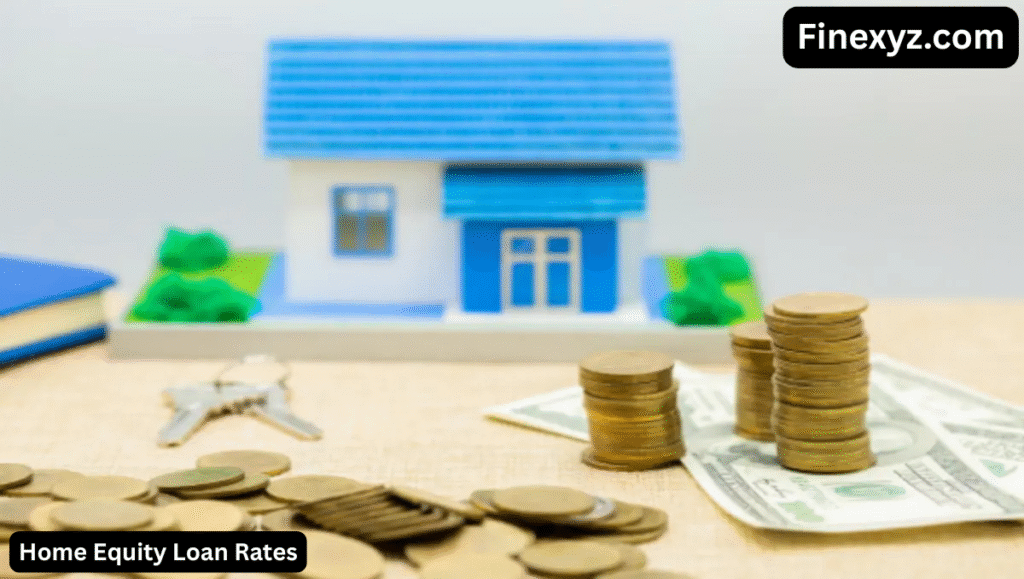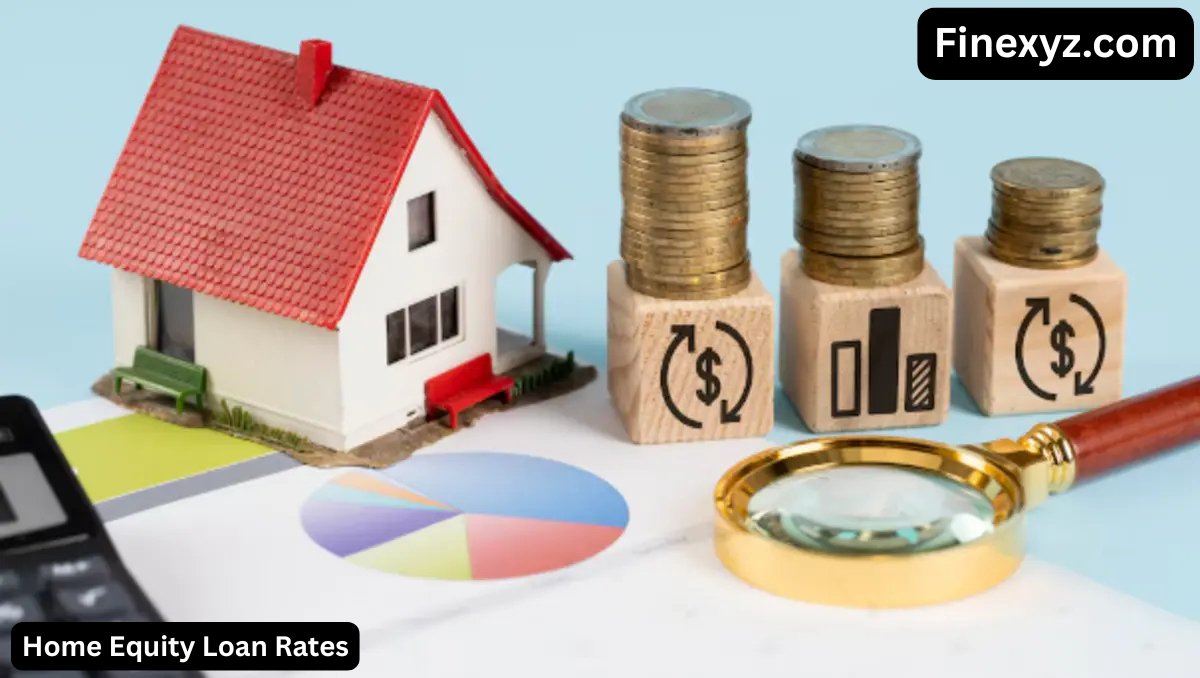Welcome to our guide to home equity loan rates. If you own a property and need more funds for renovations, debt, or large spending, a home equity loan may be the solution. In this blog, we will discuss home equity loan rates, how they work, and how to get the best deal.
What is a home equity loan?
A home equity loan allows you to borrow money against the value of your property. The amount you can borrow is determined by the market value of your house minus the balance you owe on your mortgage. For example, if your house is worth $300,000 but you still owe $150,000 on the mortgage, your equity is $150,000. Lenders may allow you to borrow a percentage of that equity, often ranging from 70% to 85%.
Home equity loans are commonly referred to as “second mortgages” because they are independent from your primary mortgage. They usually have set interest rates and monthly payments, making them more predictable and budget-friendly.
How Do Home Equity Loan Rates Work?
Home equity loan rates are the percentage of interest you will pay on the borrowed funds. The rate is not the same for everyone—it varies on a few things, such as:
- Credit score – A higher credit score usually results in a lower interest rate.
- The loan-to-value ratio (LTV) is the ratio of the amount you owe to the value of your home. A lower LTV frequently yields higher rates.
- Loan amount and term – Rates may vary depending on loan size or repayment time.
- Market conditions – Home equity loan rates, like mortgage rates, are influenced by the overall economy and the Federal Reserve’s interest rate trends.

Current Trends in Home Equity Loan Rates
In recent years, home equity loan rates have followed average mortgage rates. Borrowers benefit from lower interest rates on home equity loans. Rising interest rates make home equity loans more expensive.
Currently, typical home equity loan rates range from 7% to 10%, depending on your credit profile and lender. This is typically cheaper than credit card interest rates, which can easily surpass 20%. That is why many homeowners use home equity loans to pay down high-interest debt.
Fixed versus Variable Rates
Some home equity loans have fixed rates, whilst others may have variable rates.
- Fixed rate: The interest rate remains the same throughout the loan duration. This implies that your monthly payment will be constant, providing you with financial stability.
- Variable rate: The rate might rise or fall according to market conditions. This can be problematic if rates rise, as your payments may climb.
Most individuals prefer fixed rates because they are predictable, especially if the loan is used for large expenses such as home improvements or debt consolidation.
How to Get the Best Home Equity Loan Rate?
Here are some basic tips that will help you qualify for higher rates.
Improve your credit score. Pay bills on schedule, lower credit card balances, and avoid incurring additional debt before applying.
1. Shop around: Compare rates from several lenders, such as banks, credit unions, and online lenders.
2. Borrow only what you need. A lower loan amount reduces the lender’s risk, which may lower your interest rate.
3. Consider your loan length – a shorter loan period usually results in lower rates.
4. Check for promotions: Lenders may provide special discounts to existing customers or limited-time specials.
Advantages of Home Equity Loans
- Lower interest rates compared to credit cards
- Predictable fixed payments
- A lump sum payment for large projects
- Possible tax savings if the money is used for house upgrades (check with a tax professional).
Cons of Home Equity Loans:
- Your home is collateral; if you fail to repay, you risk losing your home.
- Closing expenses and fees – These loans frequently have upfront charges, similar to mortgages.
- Debt danger – Borrowing against your property adds additional debt to your existing mortgage.
When Should You Use a Home Equity Loan?
- Consider a home equity loan for major home renovations, such as a kitchen remodel or new roof.
- Debt consolidation (payment of high-interest credit cards)
- Large expenses, such as education or medical bills.
It’s usually not a smart idea to utilize it for short-term goals like vacations or luxury goods because you’re putting your property at danger.

Conclusion
One of the most crucial aspects to consider when choosing a home equity loan is the interest rate. They differ depending on your credit, house worth, and market conditions. While interest rates appear to be higher today than they were a few years ago, they are still typically lower than other types of borrowing.
If you’re a homeowner in need of extra finances, a home equity loan can be a good option—but only if handled wisely. Always compare lenders, study the fine print, and ensure you can afford the monthly installments.
Read more
Faq’s
1. What are the home equity loan rates?
Home equity loan rates are the interest percentages charged by lenders when you borrow money against your home’s equity. They determine how much you will pay in addition to the loan amount.
2. How are home equity loan rates calculated?
Rates are determined by several criteria, including your credit score, income, loan amount, property valuation, and market interest rates. Higher credit scores usually result in reduced rates.
3. Are the home equity loan rates set or variable?
Most home equity loans have fixed rates, which means your interest will remain the same throughout the loan term. Some lenders provide variable rates, which might fluctuate over time depending on the market.
4. How can I obtain the lowest home equity loan rates?
To get the best rates, keep your credit score high, borrow less than the value of your home, shop around, and keep your debt-to-income ratio low.
5. Can home equity loan rates alter after I get the loan?
A fixed-rate loan ensures that your interest rate remains stable. Variable-rate loans have rates that can rise or fall based on market conditions, altering your monthly payments.

1 thought on “Home Equity Loan Rates In 2025”